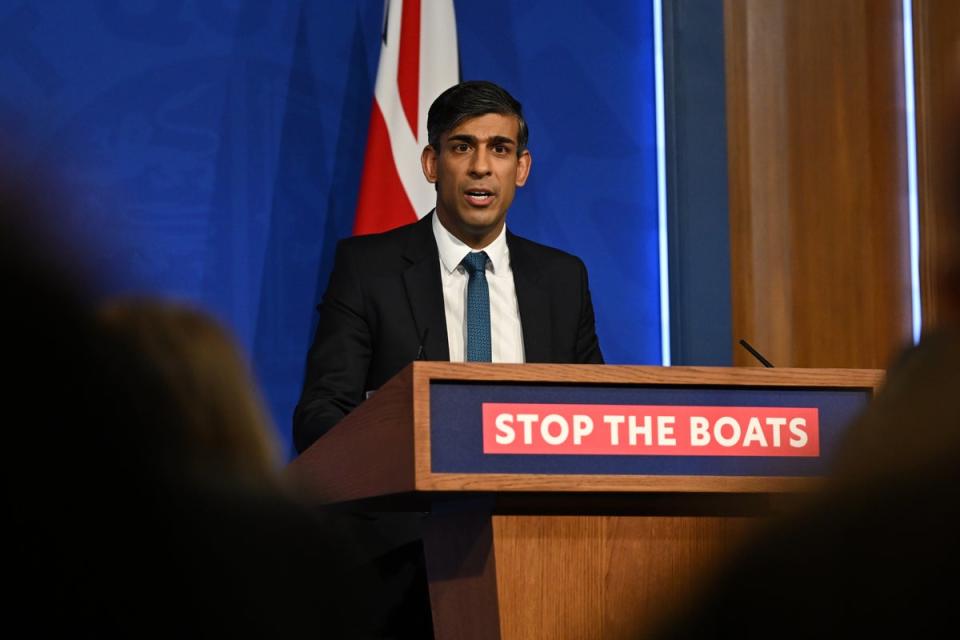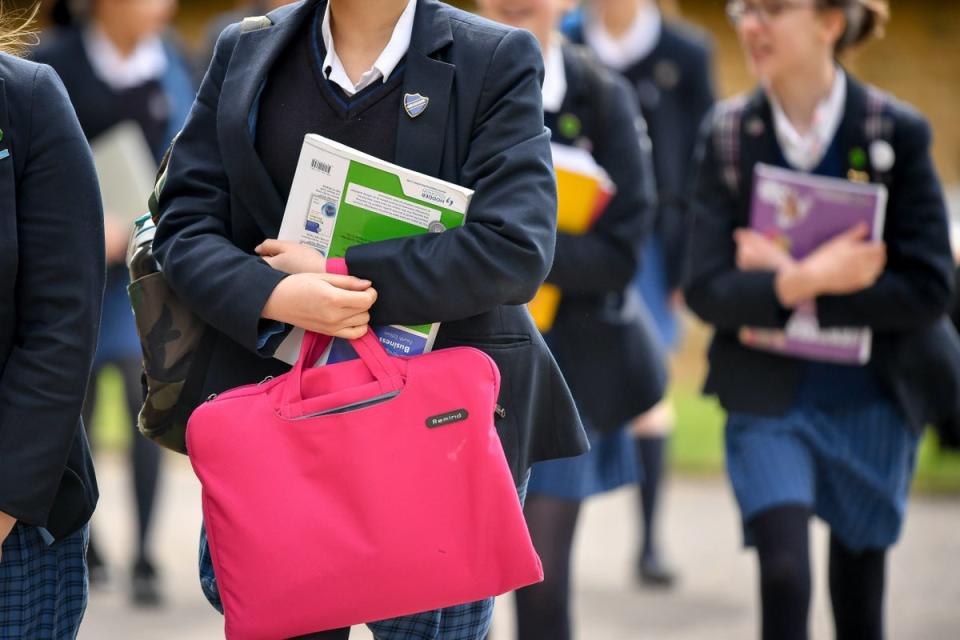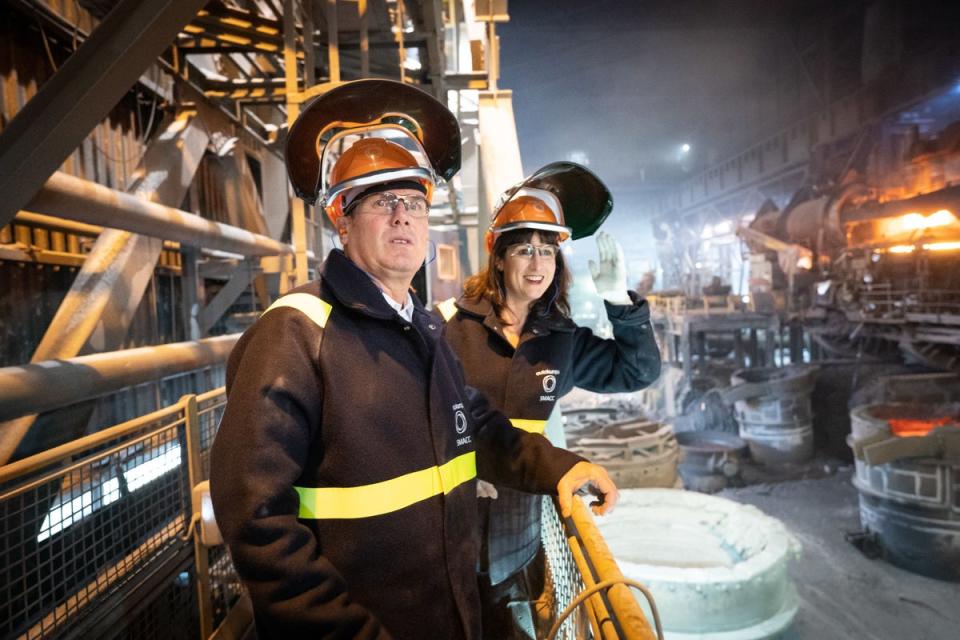What to expect in the first 100 days of Keir Starmer’s Labour government
Labour has won a landslide victory in the general election after six weeks of intense campaigning, with Sir Keir Starmer becoming the UK’s next prime minister.
Taking over from defeated Rishi Sunak, the leader promised that a vote for Labour is a vote for change in his manifesto.
From tackling NHS waiting lists to scrapping the Conservatives’ Rwanda deportation policy, here are some big issues on which voters can expect to see action in the first 100 days of a Labour government:
Cancel the Rwanda policy
Labour has confirmed it will cancel the Conservatives’ controversial Rwanda asylum plan. Designed to deter illegal immigration, the scheme would see asylum seekers, whose applications to stay in the UK are rejected, deported to Rwanda by plane for processing and resettlement.
Sir Keir has said he would scrap the policy “straight away”, redirecting funds towards measures which tackle the problem “at the source.”
Chief amongst these is setting up the new Border Security Command and a counter-terrorism unit to “smash” people smuggling gangs and tackle the issue of small boat crossings

Non-dom tax loopholes closed
While the Conservatives announced that they were scrapping the non-dom tax status in April, Labour plans to go a step further. The party has pledged to end a transitional loophole that would give non-domiciled individuals the chance to avoid paying considerable sums of inheritance tax before the changes come in on April 1 2025.
Shadow chancellor Rachel Reeves says this could raise a further £2.6bn, on top of the £3.2bn that experts from CAGE Research Centre estimate could be raised annually from the change.
Labour has said that these funds would be used largely for the NHS, as well as going into education and HMRC.

Free primary school breakfast clubs
Labour pledged to introduce free breakfast clubs for all primary school children as one of the “initial steps” on poverty. The party’s manifesto says this will be funded using the ring-fenced revenue from abolishing non-doms and tackling tax avoidance.
“Every day our children are in school is so incredibly important,” said shadow education secretary Bridget Phillipson, announcing the measure. “It damages their life chances when they aren’t there.”
Great British Energy
Labour’s most expensive policy, Great British Energy, will be a publicly-owned clean energy company. The policy aims to cut energy bills permanently by reducing the UK’s reliance on overseas providers.
The party says it will create thousands of jobs, and deliver 100 per cent clean power to the UK by 2030. A sum of £8.3bn is earmarked for the project over the course of the next parliament and, while it likely won’t be up and running within 100 days of a Labour government, some progress will be necessary to deliver on the ambitious targets.

Grow the economy
Labour promised the least revenue-raising measures of all the parties in the run-up to the general election, with Sir Keir instead insisting it is “the party of wealth creation”.
The party’s manifesto says this will be achieved through stricter spending rules, partnerships with businesses, and the “National Wealth Fund”, which will see £7.3bn spent over the course of the next parliament on industrial investments.
Institute for Fiscal Studies director Paul Johnson criticised Labour’s spending plans as “trivial,” arguing the planned growth would “take time to arrive”.
A key metric for Labour’s success will be inflation and interest rates. The party will want to keep inflation at the Bank of England’s 2 per cent target – only met right before the election – and bring interest back down to a sustainable level.
Ending tax breaks for private schools
A key revenue-raising measure pledged by Labour is the introduction of VAT and business rates to private schools. These schools currently enjoy tax exemptions due to their charitable status (which would technically remain).
The most significant change is the introduction of VAT, meaning a 20 per cent increase in fees that could be passed on to the parents who pay them.
Labour estimates this measure would raise £1.5bn a year, a figure approved by the Institute for Fiscal Studies. The party says this money would largely be redistributed into state education, most notably the recruitment of 6,500 new teachers.
However, Rachel Reeves has confirmed that although work begins immediately, the VAT change will not happen until 2025.

More NHS appointments
Labour’s headline pledge on the NHS is to cut drastically the ever-growing waiting list by introducing 40,000 new appointments each week.
While it’s unlikely the government will be aiming to reach this target within the first 100 days, waiting lists will be a key metric to look at as Labour begins to implement its plans.
Shadow health secretary Wes Streeting says the goal will be achieved by incentivising staff to carry out more appointments out of hours and using “spare capacity” in the private sector to take pressure off the NHS.
This is one of Labour’s more expensive plans, costing an estimated £1 billion a year by 2028/29. The party says it would be funded by closing non-dom tax loopholes and cracking down on tax avoidance.

 Yahoo News
Yahoo News 
